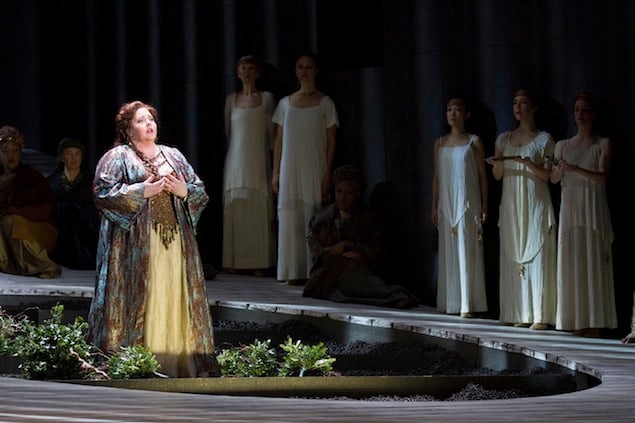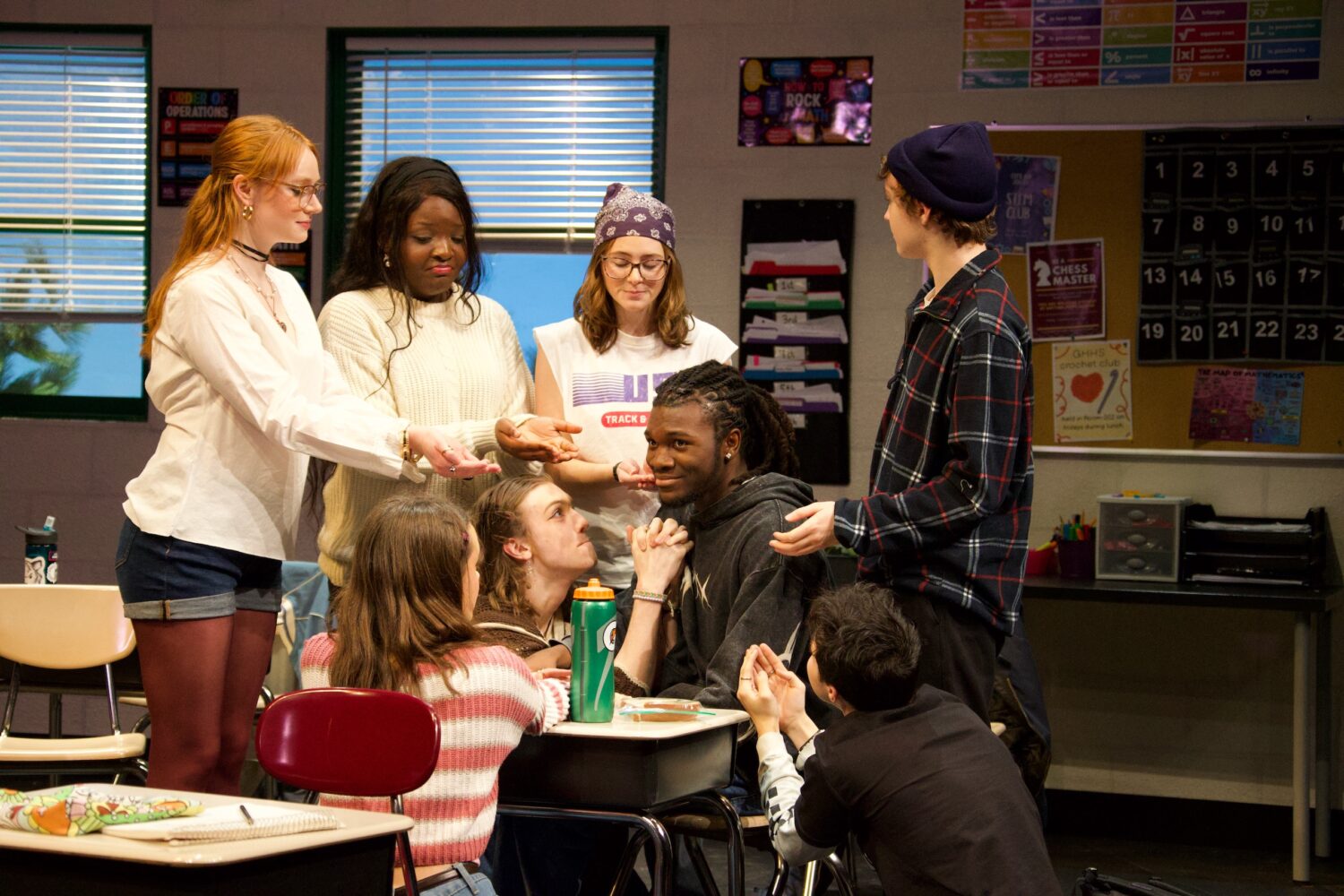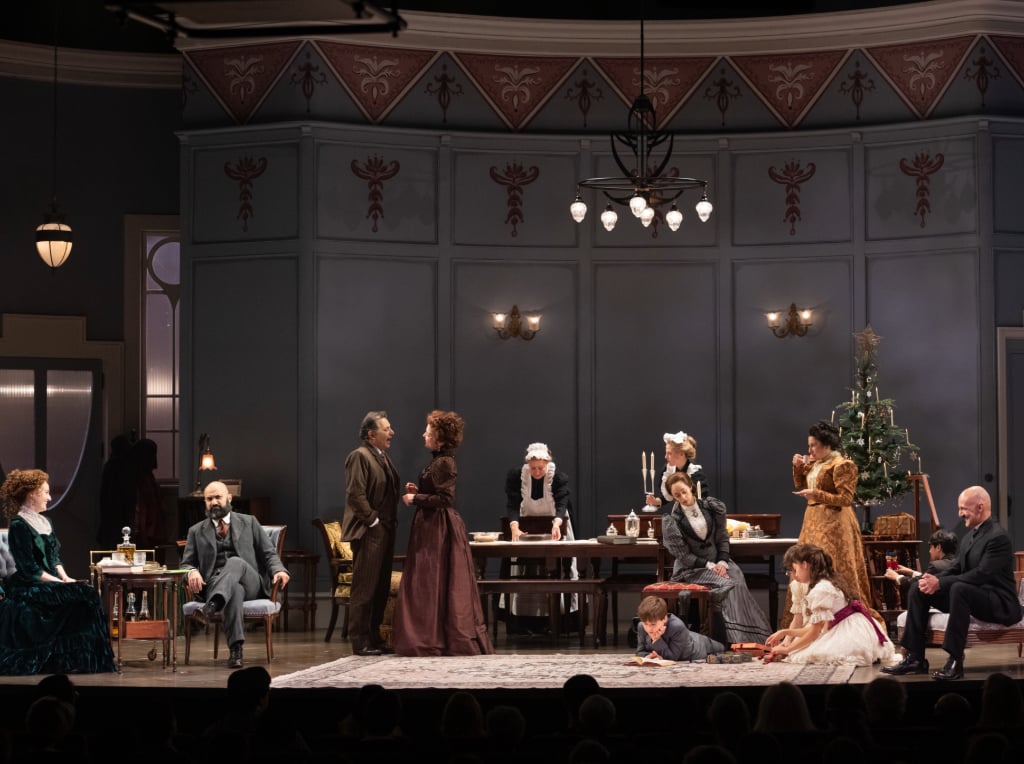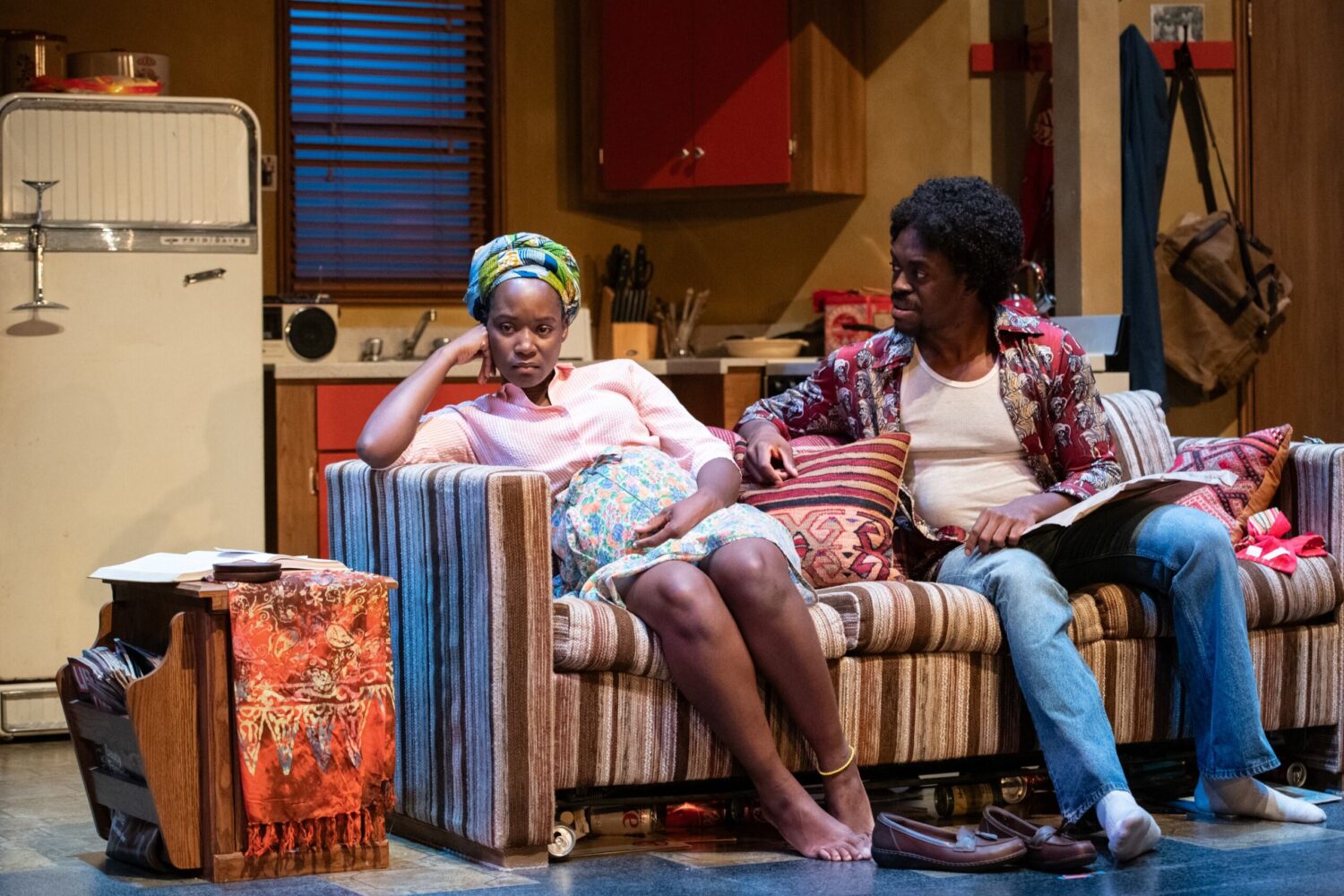Has there been a debut more eagerly anticipated than that of
Angela Meade in the role of the druid priestess Norma, heroine of Vincenzo Bellini’s masterful
opera of the same name? The buzz surrounding this young soprano began when Meade triumphed
at the 2007 Metropolitan Opera National Council Auditions, performing the cavatina
“Casta Diva” from the first act of
Norma. Meade subsequently sang the role in a concert setting, leading some critics to proclaim
her the next great Norma—undue pressure, to be sure, for someone so young. For one
thing, the role is astoundingly difficult, requiring elegance and stamina, an impeccable
coloratura technique, and raw vocal heft. But it’s also terrain that’s been marked
by the greatest voices of the last century, including Maria Callas and Joan Sutherland,
who owned the part, though in markedly different ways.
Meade’s traversal of the role with the Washington National Opera (in a production
directed by
Anne Bogart) is her first fully staged version. And for many reasons, her performance on Tuesday
evening was memorable. She has an instrument that can do just about anything, and
though much can be said about her effortless coloratura, her thrilling high notes,
and the way she floats the quietest notes to irresistible effect, I was most impressed
by the colors in her voice, as well as her musicality. Yes, this is virtuoso music.
But Meade’s virtuosity always seems to be in service of the text. Her tone is both
voluptuous and piercing (in her “Casta Diva,” a plea for peace in the face of Roman
conquest), round and supple (in the marvelous second-act recitative “Dormono entrambi
… non vedran la mano” and in the arioso that follows), and almost always pure. In
the ensembles that close both acts, Meade sculpts long, arcing lines—a master class
in breath control.
My reservations with her performance have nothing to do with her outstanding voice,
but rather with her acting. Admittedly,
Norma is a work composed of block-like scenes, with very little movement on stage. Even
so, I had the feeling throughout much of the evening that Meade was performing as
if she were on the concert, not operatic, stage. Much of the time she’s motionless
as she sings (think of a soloist standing before an orchestra), her gestures limited
mainly to extending her arms in a moment of sympathy, or averting her head to suggest
anger. Norma is an ever-tormented creature, torn between her love for the Roman proconsul,
Pollione, and her duties as priestess to the druids of Gaul. She explodes in jealous
rage at her younger rival, Adalgisa, then expresses to this same woman the most heartfelt
and genuine sympathy. She is a loving mother—who nearly carries out an unthinkable
infanticide. Meade doesn’t quite communicate all this torment, the wild swings of
emotion that lead her character to call for peace and fiery vengeance almost in the
same breath. As an actor, she’s too one-dimensional. That she can absolutely convey
these feelings vocally is all the more frustrating. I constantly wanted to close my
eyes during the performance and simply listen; If I’d heard her performance on the
radio, I’d have thought it unimpeachable.
Norma is an opera of memorable ensemble work, especially the duets featuring Norma and
Adalgisa, sung with real meat and thrust by mezzo-soprano
Dolora Zajick. (She, too, can float a pianissimo, and cover the entire dynamic range in a note,
with one great surging crescendo.) Together, they make a formidable pair. In their
first-act “Ah! sì, fa core e abbracciami,” they rise up singing in thirds—a hair-raising
moment. The famous second-act duet “Mira, o Norma” displays both Meade and Zajick
in full coloratura dress, their subsequent “Si, fino all’ore estreme” (also featuring
passages of thirds) equally as exciting.
Bass
Dmitry Belosselskiy was more than impressive as Oroveso, the head of the druids, his voice possessing
power, authority, and gravitas, precise in both articulation and attack. I would love
to hear him sing the great dramatic bass roles in the literature—indeed, I wished
there’d been more in
Norma for him to sing. As Pollione, tenor
Rafael Dávila was a bit thin, occasionally unsteady, in the upper register, but was best in the
work’s tender passages, which showed off an appealing creaminess in his voice. The
chorus sang powerfully in “Guerra, guerra! Le galliche selve,” but the orchestra played
less successfully. These days, the orchestra seems to veer from excellent to sloppy,
depending on who’s conducting. Last night, with the very young (he was born in 1983)
Daniele Rustioni making his WNO debut, there were far too many bad entrances (in the brass) and imprecise
attacks. Perhaps more crucially, Rustioni had a rather foursquare approach to phrasing
and tempo, despite all the balletic energy he expended in the pit.
Nevertheless, the evening was, on the whole, remarkable, with a young singer staking
her claim to a legendary role by the time the final, anguished ensemble reached its
climax. In the future, Meade may give audiences a more fully realized characterization
of the druid priestess (one possessed of more naked wrath, say). But for pure vocal
splendor—and you could argue that in Bellini, and in this Bellini opera in particular,
the apotheosis of singing for singing’s sake, vocal splendor is all that
matters—her time is happily now.
Norma
runs at the Kennedy Center Opera House through March 24. Tickets ($25 to $300) are
available via the Kennedy Center’s website.
















